In defiance: KU faculty marches on with talk on missing persons despite opposition
Varsity admin had told the organiser that it cannot allow seminars on 'sensitive topics'
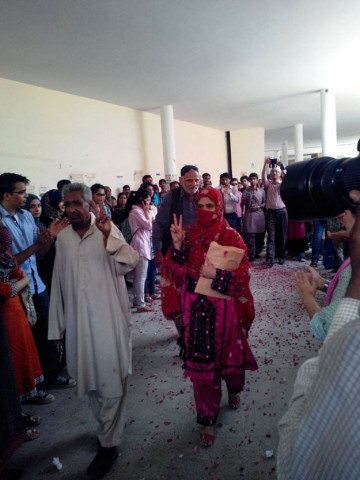
Mama Qadeer welcomed at Karachi University. PHOTO: EXPRESS
The seminar 'Baloch Missing Persons and the Role of State and Society' was held in the Arts Lobby at KU as the varsity had not given permission to use the Arts Auditorium. Standing on a concrete bench with the seminar banner pasted on the wall behind him, organiser Dr Riaz Ahmed, a professor at the Department of Applied Chemistry, told the students gathered in the lobby that he appreciated them for standing up to raise their voices against the 'brutal killings of Baloch'.
"We are taking Sabeen's vision forward," he said, referring to activist Sabeen Mahmud who was shot dead on April 24 shortly after she hosted a similar talk on missing persons at her cafe, T2F. "She gave up her life to un-silence the voice of Baloch missing persons," he added.
Despite the strict checks at the varsity entrance, a large number of students from KU and neighbouring institutions — Institute of Business Administration and NED University of Engineering and Technology — joined civil society representatives. For Dr Ahmed, this was a sign that we are not afraid.
"The administration is weak, which is why they have closed these doors today," claimed the professor, as he pointed towards the Arts auditorium's locked gates. "After seeing the huge crowd, the administration should be ashamed and should open up the doors for healthy discussions and talks."
He said the purpose of Wednesday's gathering was not to talk or discuss the issue but to protest the KU administration's decision to keep the auditorium closed. A university is an educational institute that should be open to discussion and question, he pointed out. "The situation here is odd and students are stopped from getting information," he said.
The Baloch rights activist was welcomed with rose petals as he walked into the lobby with fellow activists, Farzana Baloch and Mir Muhammad Ali Talpur.
"We are happy to see that people want to know about our problems," said Qadeer before he read out his written speech in which he mentioned how thousands of people have been forced to migrate from Balochistan and the large number of people who are unaccounted for.
Thousands of Baloch men are abducted and brutally killed, he pointed out. "You can't understand the pain of waiting for your loved ones for years and you only receive their tortured bodies."
"We don't have complaints but we are just here to bring out our point of view," said activist Talpur, who studied journalism from KU in 1969. "This is not the first time I am protesting against the Baloch problems in KU. I have done so decades earlier," he said.
Talpur said that statistics and numbers don't matter when it comes to missing persons. "We should be worried if only one person is missing," he said.
Several students, many of whom were Baloch, wanted to question Qadeer about his movement. Initially he assured them that he will answer all the questions but later the question-answer session was cancelled. "Why can't we question him?" yelled a student in anger. "We have the right to ask since we gave him space to say what he wants to tell us."
After the talk, the Baloch activists walked to the administration block for a small protest. Qadeer claimed he has been approached by the administrations of Aga Khan University and Lyari University to address their students. However, the AKU spokesperson denied this and requested Qadeer to identify who approached him from AKU.
Security: Who let Mama Qadeer in?
The KU security team has yet to figure out how Baloch activist Mama Qadeer managed to enter the university. “Mama Qadeer did not enter the building this morning,” KU campus security adviser Dr Muhammad Zubair told The Express Tribune.
Since the University of Karachi (KU) faculty was adamant to hold the talk despite warnings by the administration, the Rangers and police thoroughly scanned all the cars entering the campus. “No outsiders were allowed today and the people attending the session were brought in professors’ cars,” he said.
Published in The Express Tribune, May 7th, 2015.




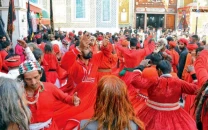

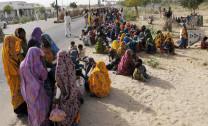

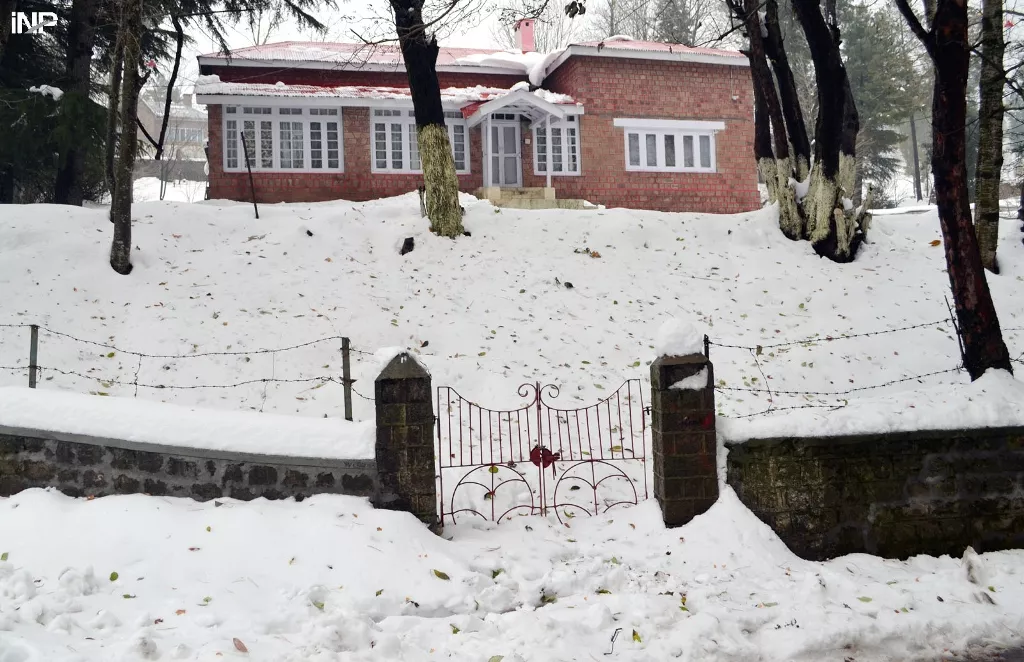


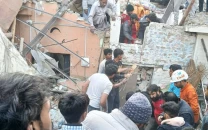







COMMENTS
Comments are moderated and generally will be posted if they are on-topic and not abusive.
For more information, please see our Comments FAQ